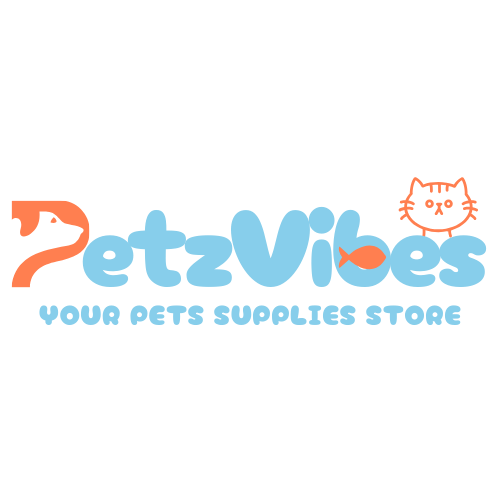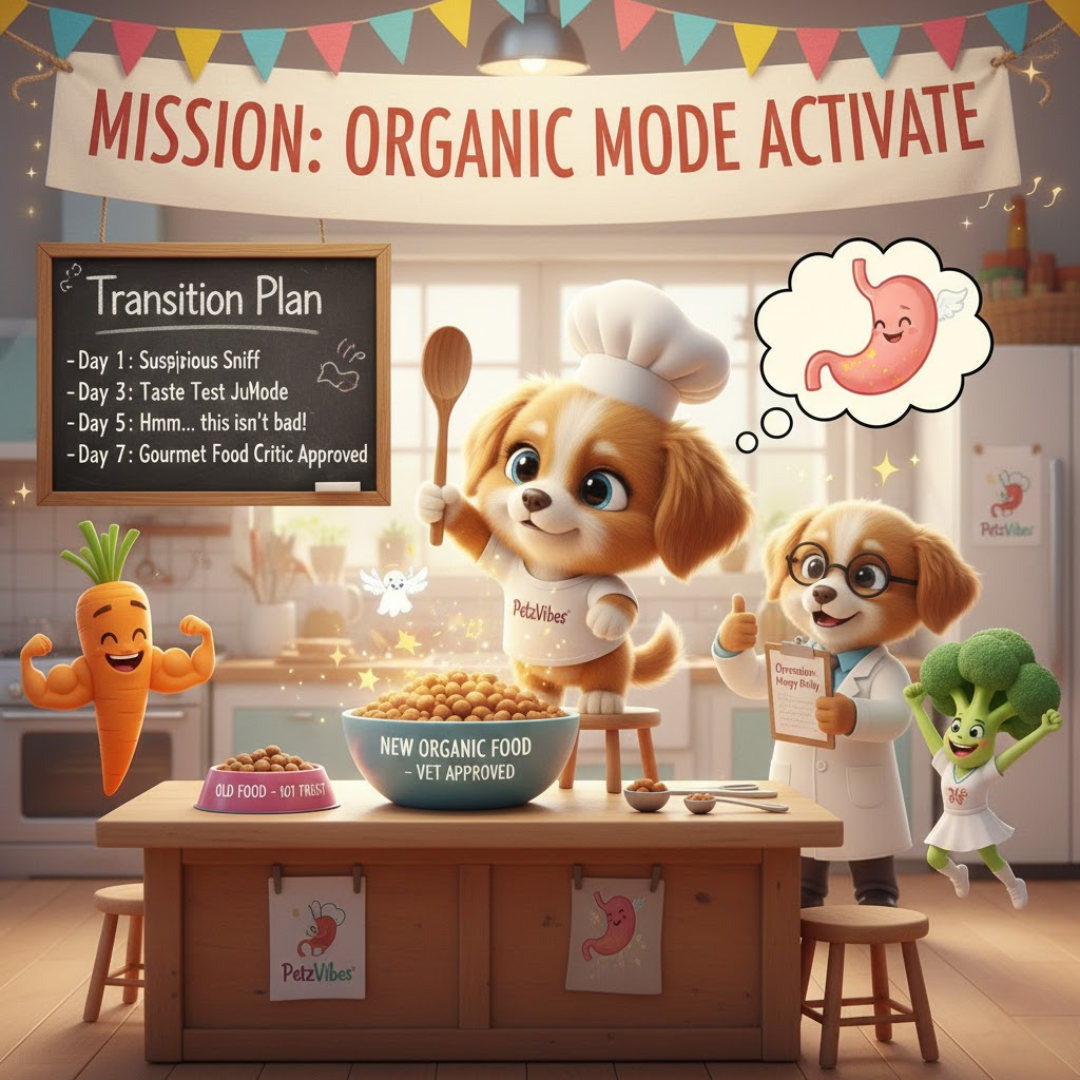Thinking about starting your pet on a pet organic diet? We’ll guide you through a smooth transition to avoid tummy troubles and keep your furry friend feeling their best.
Understanding the Benefits of a Pet Organic Diet
Switching to an organic diet for your pet can have numerous benefits. Organic pet food is free from artificial colors, flavors, and preservatives, making it a healthier option for your furry friend. Organic ingredients are also grown without synthetic pesticides and fertilizers, reducing your pet’s exposure to harmful chemicals. Additionally, organic pet food often contains higher-quality ingredients that can improve your pet’s health and well-being.
Transitioning to an organic diet can be an excellent choice for your pet’s health and happiness. By choosing organic pet food, you provide your furry friend with a diet free from harmful chemicals and high-quality ingredients that can support their well-being.
Benefits of an Organic Diet for Your Pet
Switching to an organic diet can benefit your pet in numerous ways. Organic pet food is free from artificial colors, flavors, and preservatives, reducing the risk of health issues. Organic ingredients are also grown without synthetic pesticides and fertilizers, making them safer for your pet. Moreover, organic pet food often contains higher-quality ingredients that can improve your pet’s health and well-being. Switching to an organic diet can be an excellent choice for your pet’s overall health and happiness.
Gradually Introducing Organic Food into Your Pet’s Diet
When transitioning your pet to an organic diet, it is essential to do so gradually to avoid upsetting their stomach. Abrupt changes in diet can cause digestive upset, such as diarrhea and vomiting. To prevent these issues, mix a small amount of organic food with your pet’s current food and gradually increase the proportion of organic food over several days to weeks. This gradual transition allows your pet’s digestive system to adjust to the new diet and reduces the risk of gastrointestinal upset.
Transitioning your pet to an organic diet should be done gradually to avoid upsetting their stomach. Abrupt changes can lead to digestive upset, such as diarrhea and vomiting. To prevent these issues, mix a small amount of organic food with your pet’s current food and gradually increase the proportion of organic food over time. This gradual transition allows your pet’s digestive system to adjust to the new diet and minimizes the risk of gastrointestinal upset.
Tips for Introducing Organic Food Gradually
Mix a small amount of organic food with your pet’s current food. Gradually increase the proportion of organic food over several days to weeks. This allows your pet’s digestive system to adjust to the new diet. Keep an eye on your pet for any signs of digestive upset, such as diarrhea or vomiting, and adjust the transition speed accordingly.
Monitoring Your Pet’s Response to the New Diet
As you transition your pet to an organic diet, monitoring their response to the new food is essential. Keep an eye on their stools to ensure they are firm and well-formed, as loose stools can be a sign of digestive upset. Additionally, watch for changes in your pet’s energy levels, coat condition, and overall well-being. If you notice any concerning symptoms, such as persistent diarrhea, vomiting, or lethargy, consult your veterinarian for guidance.
Monitoring your pet’s response to the new diet is crucial during the transition process. Keep an eye on their stools to ensure they are firm and well-formed, which indicates good digestive health. Watch for changes in your pet’s energy levels, coat condition, and overall well-being, as these can indicate how well they adjust to the new diet. If you notice any concerning symptoms, such as persistent diarrhea or vomiting, consult your veterinarian for advice.
Signs to Watch For
Monitor your pet’s stools to ensure they are firm and well-formed. Loose stool can be a sign of digestive upset. Monitor your pet’s energy levels, coat condition, and overall well-being. If you notice any concerning symptoms, such as persistent diarrhea, vomiting, or lethargy, consult your veterinarian for guidance.
Choosing the Right Type of Organic Food for Your Pet
When selecting an organic diet for your pet, choosing a high-quality product that meets its nutritional needs is essential. Look for organic pet food formulated to provide a balanced diet with important nutrients, such as proteins, fats, carbohydrates, vitamins, and minerals. Additionally, consider your pet’s age, size, and activity level when selecting a specific type of organic food. Some pets may require specialized formulas, such as organic puppy or senior food, to meet their unique nutritional requirements.
Selecting the right type of organic food for your pet is crucial for its health and well-being. Choose a high-quality product formulated to provide a balanced diet with essential nutrients. Consider your pet’s age, size, and activity level when selecting a specific type of organic food. Some pets may require specialized formulas, such as organic puppy or senior food, to meet their unique nutritional needs.
Tips for Choosing the Right Organic Food
Look for high-quality organic pet food with a balanced diet and essential nutrients. When selecting a specific type of organic food, consider your pet’s age, size, and activity level. Some pets may need specialized formulas, such as organic puppy or senior food, to meet their unique nutritional requirements.
Supplementing Your Pet’s Diet as Needed
While switching to an organic diet can provide numerous health benefits for your pet, some animals may require additional supplements to meet their needs. For example, pets with certain health conditions or dietary restrictions may benefit from supplements that address these issues. Consult your veterinarian to determine if your pet requires additional supplements and what types would be most beneficial for their health. Remember, supplements should never replace a balanced diet but can complement it to support your pet’s overall well-being.
Some pets may require additional supplements, even on an organic diet, to meet their specific health needs. For example, animals with certain health conditions or dietary restrictions may benefit from supplements that address these issues. Consult your veterinarian to determine if your pet needs any supplements and which types would be most beneficial for their health. Remember that supplements should never replace a balanced diet, but can complement it to support your pet’s overall well-being.
When to Consider Supplements
Pets with certain health conditions or dietary restrictions may benefit from supplements. Consult your veterinarian to determine if your pet requires any supplements and which types would be most beneficial for their health. Remember, supplements should never replace a balanced diet but can complement it to support your pet’s overall well-being.
Ensuring Fresh Water Availability
Regardless of your pet’s diet, ensuring access to fresh water is crucial for their health. Fresh water helps prevent dehydration and aids digestion, nutrient absorption, and overall well-being. Ensure your pet has a clean water source available at all times, especially when transitioning to a new diet. Keeping your furry friend well-hydrated is essential for maintaining their health and supporting their transition to an organic diet.
Fresh water should always be available to your pet, regardless of their diet. It prevents dehydration and aids digestion, nutrient absorption, and overall well-being. Ensure your pet has a clean water source accessible at all times, especially during the transition to a new diet. Keeping your furry friend well-hydrated is essential for their health and supporting their transition to an organic diet.
Importance of Fresh Water
Fresh water prevents dehydration, aids in digestion, nutrient absorption, and overall well-being. Ensure your pet has access to a clean water source, especially when transitioning to a new diet. Keeping your pet well-hydrated is crucial for maintaining their health and supporting their transition to an organic diet.
Consult with Your Veterinarian for Guidance
Before making any significant changes to your pet’s diet, it is crucial to consult with your veterinarian for guidance. Your vet can provide valuable insights into your pet’s unique nutritional needs and recommend the best diet plan for their health and well-being. They can also address concerns about transitioning to an organic diet and help you make informed decisions about your pet’s nutrition. Your vet is your best resource for ensuring your pet’s diet supports their health and happiness.
When considering a shift to an organic diet for your pet, consult your veterinarian. They can offer valuable insights into your pet’s nutritional requirements and recommend the best diet plan. Your vet can also address concerns about transitioning to an organic diet and help you make informed choices about your pet’s nutrition. Your veterinarian is essential for ensuring your pet’s diet supports their health and happiness.
Why Consult with Your Veterinarian
Before making significant changes to your pet’s diet, consult your veterinarian. They can offer valuable insights into your pet’s unique nutritional needs and recommend the best diet plan for their health and well-being. Your vet is your best resource for ensuring your pet’s diet supports their health and happiness.
In conclusion, transitioning your pet to an organic diet can offer numerous benefits for their health and well-being. By understanding the advantages of organic food, gradually introducing it into your pet’s diet, monitoring their response, choosing the right type of food, supplementing as needed, ensuring fresh water availability, and consulting with your veterinarian for guidance, you can make the switch smoothly and keep your pet’s stomach happy. Remember, your pet’s health is a top priority, and choosing an organic diet is a positive step towards supporting their overall well-being!






